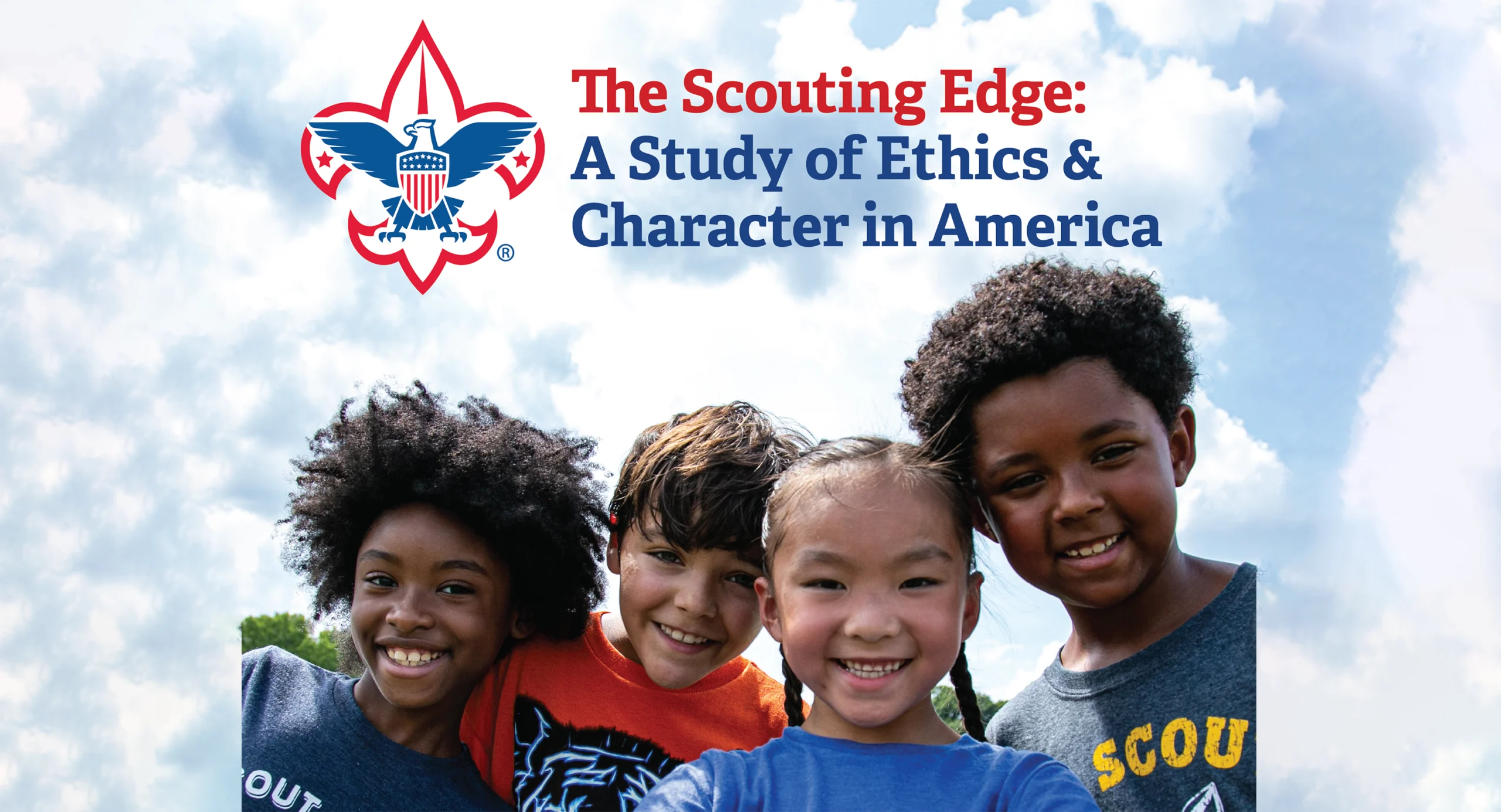A recent study found that the connection is clear between Scouting and the perception that Scouts and alumni act ethically and morally in their attitudes and behaviors. People who are Scouts, as well as those who have never been Scouts, believe that Scouts and Scouting alumni are more likely than their counterparts to act in ways that are described as ethical and moral. They believe that people affiliated with Scouting realize benefits beyond those who have never been in Scouting.
- Scouting alumni report teaching their children about values and ethics at an earlier age than their peers, and Scouts report learning about values and ethics from their parents at an earlier age than their peers.
- There is a strong link between Scouting and religion, as alumni and Scouts are more likely than their counterparts to indicate a primary religion, and alumni report attending religious services more frequently.
- Additionally, alumni and Scouts are more likely to indicate that “reverence” is both an American and personal value.
- Furthermore, alumni and Scouts express, in higher proportions than their counterparts, that voting in every election, volunteering in the community, participating in youth-related organizations, and participating actively in charitable organizations are somewhat to extremely important traits in being a good citizen.
- Scouts and alumni express a greater willingness, if necessary, to fight for their country.
- Scouts and alumni are more likely than their counterparts to identify negative behaviors as being “mostly” or “absolutely” wrong, including tossing out trash while driving, not declaring income to the IRS, exaggerating education/experience on a resume, or smoking cigarettes/vaping.
- Scouts and non-Scouts, alumni and non-alumni, agree that Scouting improves our country across a variety of vectors – in particular, they recognize the “somewhat” or “extremely” positive effects Scouting has on one’s leadership abilities and the competency to help others accomplish their goals.

